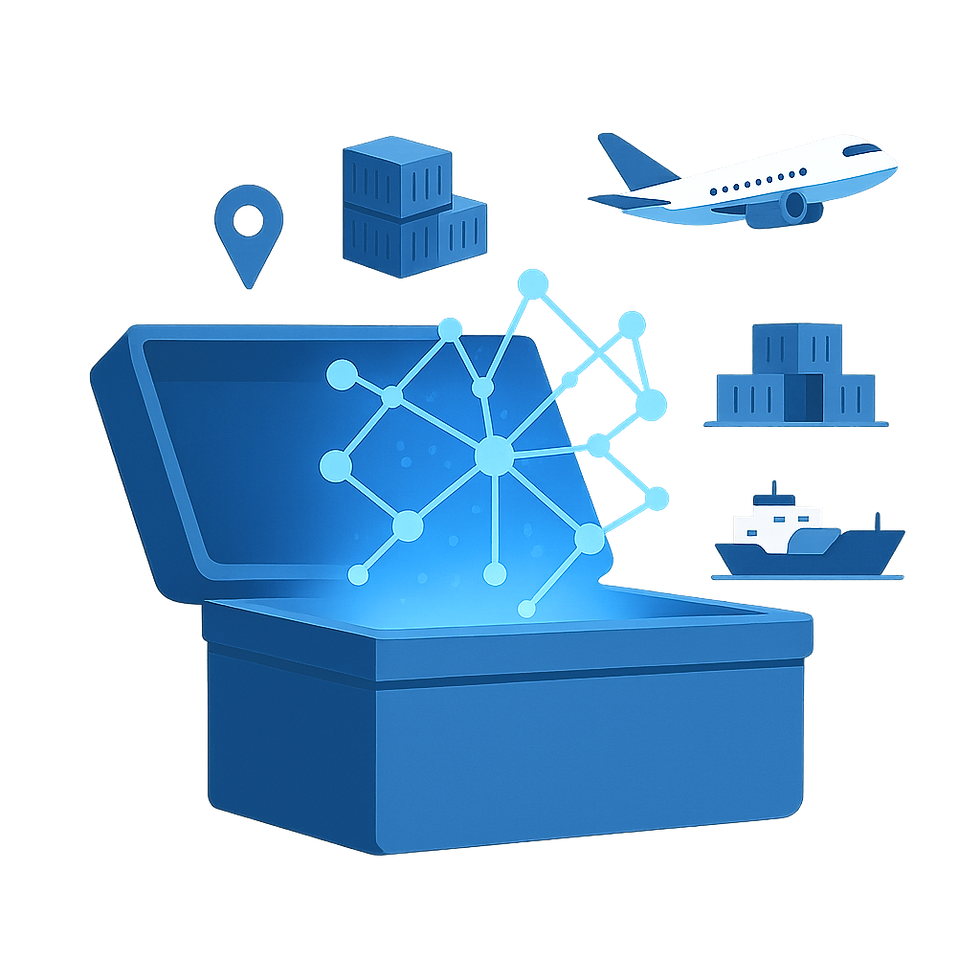How AI is Shaping the Industry by 2027 and Beyond
- Tomer Shamir
- 23 ביולי
- זמן קריאה 3 דקות
By 2027, artificial intelligence (AI) and automation will significantly reshape the customs brokerage industry. Importers and exporters will regularly use advanced technology, altering traditional operations, market competition, and strategic approaches within the sector.
Industry Snapshot
Traditionally dependent on manual tasks and extensive paperwork, customs brokerage will rapidly adapt as digital innovation advances. Brokers will transition into strategic, tech-savvy advisors, emphasizing compliance, risk management, and tailored consultation rather than administrative duties.
Emerging Technological Trends
1. Smart Document Processing and HS Code Classification: Automated systems will swiftly handle document sorting and precise Harmonized System (HS) code assignment, drastically minimizing human errors and boosting compliance efficiency.
2. Improved Regulatory Management: Digital tools will continuously monitor global regulatory shifts, updating compliance data instantly. This proactive approach will significantly lower the chances of costly delays or penalties.
3. Immediate Customs Advisory Services: Interactive platforms will deliver instant customs rulings, allowing traders quick verification of tariff classifications, duty assessments, and compliance-related queries, thus simplifying operational decisions.
4. Advanced Risk Anticipation: Predictive technologies will identify possible customs inspections ahead of time, enabling traders to proactively resolve potential issues, make supply chains more predictable and reliable.
5. Streamlined Customer Interaction: Routine processes, such as issuing quotations, tracking shipments, and document management, will be fully automated, freeing up human personnel to manage more complex or sensitive interactions.
6. Comprehensive AI Integration: AI technology embedded within Transport Management Systems (TMS) and enterprise systems (ERP) will streamline workflows from initial order to final delivery, significantly increasing transparency and customer satisfaction.
Role Evolution in the Industry
Customs Brokers: Roles will pivot toward advisory and strategic functions, emphasizing compliance expertise and client relationships rather than transactional paperwork.
Freight Forwarders: Automation of routine processes will allow forwarders to focus on strategic logistics planning, exceptional case management, and client engagement.
Regulatory Authorities: Enhanced accuracy in reporting and real-time data analytics will simplify monitoring processes, permitting authorities to dedicate more effort to targeted compliance reviews and policy refinement.
Potential Industry Challenges
Adopting AI widely presents certain obstacles, including:
Data Protection and Privacy: Strengthening cybersecurity measures to protect sensitive trade data.
Regulatory Flexibility: Authorities will need to swiftly update regulations to reflect the evolving digital landscape.
Workforce Training: Extensive reskilling will be crucial to prepare professionals for roles enhanced by technology.
Projected Trends for 2030
By 2030, continued developments in AI, blockchain, and Internet of Things (IoT) technologies are expected to transform the customs brokerage industry even further:
1. Blockchain for Greater Transparency: Blockchain technology will offer secure, transparent, and permanent records of customs activities, reducing fraud, improving trust, and facilitating smoother cross-border transactions.
2. IoT-Enabled Shipment Monitoring: Advanced IoT sensors will allow real-time tracking and streamlined customs clearances, significantly cutting transit times and enhancing logistical accuracy.
3. Automated Compliance Auditing: Fully autonomous audits powered by AI will ensure continuous compliance with global regulatory standards, eliminating the need for manual audits.
4. Personalized Advisory Services: Highly sophisticated AI solutions will deliver customized strategic insights, helping businesses optimize trade decisions and minimize costs associated with customs duties.
5. Integrated Global Trade Platforms: Unified digital ecosystems will connect customs brokerage, freight forwarding, regulatory compliance, and logistics management, creating a seamless global trade experience.
Final Thoughts
The integration of AI, automation, and emerging technologies will redefine the customs brokerage industry by 2027 and beyond. Human expertise will continue to be crucial, but brokers will increasingly rely on technological solutions to enhance strategic advisory capabilities, compliance accuracy, and overall customer service.




תגובות